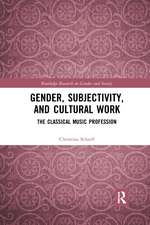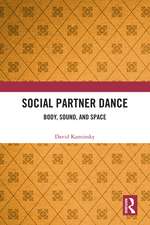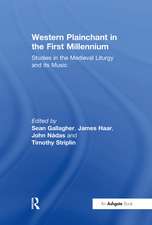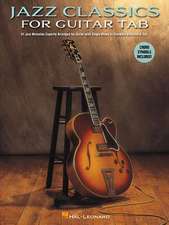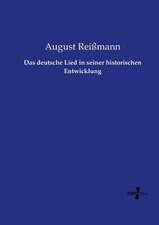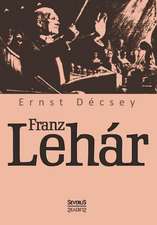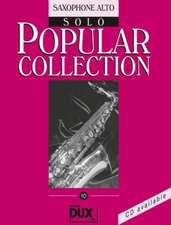Composing for the State: Music in Twentieth-Century Dictatorships: Musical Cultures of the Twentieth Century
Editat de Esteban Buch, Igor Contreras Zubillaga, Manuel Deniz Silvaen Limba Engleză Paperback – 7 feb 2019
This book presents ten studies focusing on music inspired and promoted by regimes such as Nazi Germany, Fascist Italy, France under Vichy, the USSR and its satellites, Franco's Spain, Salazar's Portugal, Maoist China, and Latin-American dictatorships. By discussing the musical works themselves, whether they were conceived as ways to provide "music for the people", to personally honour the dictator, or to participate in State commemorations of glorious historical events, the book examines the relationship between the composers and the State.
This important volume, therefore, addresses theoretical issues long neglected by both musicologists and historians: What is the relationship between art music and propaganda? How did composers participate in musical life under the control of an authoritarian State? What was specifically political in the works produced in these contexts? How did audiences react to them? Can we speak confidently about "State music"? In this way, Composing for the State: Music in Twentieth Century Dictatorships is an essential contribution to our understanding of musical cultures of the twentieth century, as well as the symbolic policies of dictatorial regimes.
| Toate formatele și edițiile | Preț | Express |
|---|---|---|
| Paperback (1) | 342.75 lei 3-5 săpt. | +27.01 lei 4-10 zile |
| Taylor & Francis – 7 feb 2019 | 342.75 lei 3-5 săpt. | +27.01 lei 4-10 zile |
| Hardback (1) | 1005.67 lei 6-8 săpt. | |
| Taylor & Francis – 27 ian 2016 | 1005.67 lei 6-8 săpt. |
Preț: 342.75 lei
Nou
Puncte Express: 514
Preț estimativ în valută:
65.59€ • 68.23$ • 54.15£
65.59€ • 68.23$ • 54.15£
Carte disponibilă
Livrare economică 25 martie-08 aprilie
Livrare express 08-14 martie pentru 36.100 lei
Preluare comenzi: 021 569.72.76
Specificații
ISBN-13: 9780367229214
ISBN-10: 0367229218
Pagini: 236
Dimensiuni: 156 x 234 x 22 mm
Greutate: 0.57 kg
Ediția:1
Editura: Taylor & Francis
Colecția Routledge
Seria Musical Cultures of the Twentieth Century
Locul publicării:Oxford, United Kingdom
ISBN-10: 0367229218
Pagini: 236
Dimensiuni: 156 x 234 x 22 mm
Greutate: 0.57 kg
Ediția:1
Editura: Taylor & Francis
Colecția Routledge
Seria Musical Cultures of the Twentieth Century
Locul publicării:Oxford, United Kingdom
Public țintă
Postgraduate and UndergraduateCuprins
Esteban Buch, Igor Contreras Zubillaga and Manuel Deniz Silva – ‘State Music’ and Dictatorship: an Introduction
Part 1: Music for the People
1. Yannick Simon Music and the Vichy Regime through Jeune France’s Three Joan-of-Arc Productions (1941)
2. Analía Chernavsky The ‘Dança da Terra' Issue’ (1943): Heitor Villa-Lobos and the Vargas Dictatorship
3. Hon-lun Yang Unravelling The East Is Red (1964): Socialist Music and Politics in the People’s Republic of China
Part 2: Composing for the Dictator
4. Katherine L. FitzGibbon (Lewis&Clark College, Portland) – Gottfried Müller’s Deutsches Heldenrequiem (1934): Nazi Ideology Cloaked in Historic Style
5. Justine Comtois Alfredo Casella’s Il deserto tentato (1937): an Opera Dedicated to Benito Mussolini
6. Marina Frolova-Walker A Birthday Present for Stalin: Shostakovich’s Song of the Forests (1949)
7. Andrzej Tuchowski ‘State music’ in Poland under the Stalinist Regime: Alfred Gradstein’s Cantata A Word about Stalin (1951)
Part 3: State Commemorations
8. Manuel Deniz Silva Salazar’s dictatorship and the paradoxes of State music: Luís Freitas Branco’s ill-fated Solemn Overture 1640 (1939)
9. Igor Contreras Zubillaga El Concierto de la Paz (1964): Three Commissions to Celebrate 25 Years of Francoism
10. Esteban Buch Conquistadores, Indians, and Argentine Generals: Iubilum op. 51, a Commission to Alberto Ginastera (1980).
Index
Part 1: Music for the People
1. Yannick Simon Music and the Vichy Regime through Jeune France’s Three Joan-of-Arc Productions (1941)
2. Analía Chernavsky The ‘Dança da Terra' Issue’ (1943): Heitor Villa-Lobos and the Vargas Dictatorship
3. Hon-lun Yang Unravelling The East Is Red (1964): Socialist Music and Politics in the People’s Republic of China
Part 2: Composing for the Dictator
4. Katherine L. FitzGibbon (Lewis&Clark College, Portland) – Gottfried Müller’s Deutsches Heldenrequiem (1934): Nazi Ideology Cloaked in Historic Style
5. Justine Comtois Alfredo Casella’s Il deserto tentato (1937): an Opera Dedicated to Benito Mussolini
6. Marina Frolova-Walker A Birthday Present for Stalin: Shostakovich’s Song of the Forests (1949)
7. Andrzej Tuchowski ‘State music’ in Poland under the Stalinist Regime: Alfred Gradstein’s Cantata A Word about Stalin (1951)
Part 3: State Commemorations
8. Manuel Deniz Silva Salazar’s dictatorship and the paradoxes of State music: Luís Freitas Branco’s ill-fated Solemn Overture 1640 (1939)
9. Igor Contreras Zubillaga El Concierto de la Paz (1964): Three Commissions to Celebrate 25 Years of Francoism
10. Esteban Buch Conquistadores, Indians, and Argentine Generals: Iubilum op. 51, a Commission to Alberto Ginastera (1980).
Index
Notă biografică
Esteban Buch is directeur d’études (full professor) at the Ecole des Hautes Etudes en Sciences Sociales (EHESS) in Paris, France. A specialist of the relationships between music and politics in the twentieth century, he is the author of O juremos con gloria morir (2013), L’Affaire Bomarzo (2011), Le cas Schoenberg (2006), La Neuvième de Beethoven (1999; English tr. 2003) and Histoire d’un secret (1994). He has also co-edited Du politique en analyse musicale (2014), Tangos cultos (2012), Réévaluer l’art moderne et les avant-gardes (2010), and La Grande guerre des musiciens (2009).
Igor Contreras Zubillaga is a PhD candidate at the Ecole des Hautes Etudes en Sciences Sociales of Paris, France, with a thesis on the Spanish musical avant-garde during Franco's dictatorship. He is co-editor of the volumes Le son des rouages: Representations des rapports homme-machine dans la musique du 20e siècle (2011) and A l'avant-garde! Art et politique dans les années 1960 et 1970 (2013).
Manuel Deniz Silva is Research Fellow at the FCSH (Universidade Nova de Lisboa, Portugal), where he coordinates the Music and Media thematic strand of the INET-md (Music and Dance Research Centre). He is co-editor of the Portuguese Journal of Musicology and editor of Kinethophone - Journal of Music, Sound and Moving Image.
Igor Contreras Zubillaga is a PhD candidate at the Ecole des Hautes Etudes en Sciences Sociales of Paris, France, with a thesis on the Spanish musical avant-garde during Franco's dictatorship. He is co-editor of the volumes Le son des rouages: Representations des rapports homme-machine dans la musique du 20e siècle (2011) and A l'avant-garde! Art et politique dans les années 1960 et 1970 (2013).
Manuel Deniz Silva is Research Fellow at the FCSH (Universidade Nova de Lisboa, Portugal), where he coordinates the Music and Media thematic strand of the INET-md (Music and Dance Research Centre). He is co-editor of the Portuguese Journal of Musicology and editor of Kinethophone - Journal of Music, Sound and Moving Image.
Recenzii
'Ten fascinating narratives are presented here about the function of state music in a wider range of twentieth-century dictatorships. An international roster of distinguished authors ensures the most detailed study of this subject thus far. This unique volume clarifies how music was used to present the public face of state sanctioned propaganda.' - Patricia Hall, University of Michigan, USA
'These essays, surveying musical works that span five decades and three continents, shed light on creations generally overlooked by virtue of their being "tainted" because they were commissioned by dictatorships. Instead of shunning these works, the essays explore the complex interactions of the state, the composers, and the public and offer new paths toward dissecting notions of creative autonomy in the twentieth century.' - Pamela Potter, University of Wisconsin-Madison, USA
"Composing for the State [offers] ten case studies grounded in original research on the subject of music and twentieth-century dictatorships. Geographically, the scope is also wider, encompassing work not just on Europe but also on Latin America and China. And yet, its central question is not too far removed from Riley and Smith’s: How do we understand music commissioned by the state when that state is a dictatorship? In their introduction, the editors usefully suggest that these compositions should not simply be written off as propaganda. Instead, we should explore them, their genesis, and their reception both to enrich our comprehension of cultural life and net-works under dictatorships and, more broadly, to investigate further music’s role in the construction and perseverance of such political regimes." - Anthony J. Steinholff, Université du Québec à Montréal, Canada
"...the chapters in this collection help to set the record straight about the relationship between music and politics in an admirable number of contexts." -Lindsay Carter, University of Bristol
"While many readers will wish to consult this book for its rather specialist case studies (aided by the detailed index), the most pertinent of the chapters here raise questions that can be traced across decades of scholarship. Buch’s and Frolova-Walker’s chapters stand out as particularly urgent contributions, raising questions that help to show the potential scope of this area of enquiry. " -Daniel Elphick, Oxford Academic
'Ten fascinating narratives are presented here about the function of state music in a wider range of twentieth-century dictatorships. An international roster of distinguished authors ensures the most detailed study of this subject thus far. This unique volume clarifies how music was used to present the public face of state sanctioned propaganda.' - Patricia Hall, University of Michigan, USA
'These essays, surveying musical works that span five decades and three continents, shed light on creations generally overlooked by virtue of their being "tainted" because they were commissioned by dictatorships. Instead of shunning these works, the essays explore the complex interactions of the state, the composers, and the public and offer new paths toward dissecting notions of creative autonomy in the twentieth century.' - Pamela Potter, University of Wisconsin-Madison, USA
"...the chapters in this collection help to set the record straight about the relationship between music and politics in an admirable number of contexts." -Lindsay Carter, University of Bristol
'These essays, surveying musical works that span five decades and three continents, shed light on creations generally overlooked by virtue of their being "tainted" because they were commissioned by dictatorships. Instead of shunning these works, the essays explore the complex interactions of the state, the composers, and the public and offer new paths toward dissecting notions of creative autonomy in the twentieth century.' - Pamela Potter, University of Wisconsin-Madison, USA
"Composing for the State [offers] ten case studies grounded in original research on the subject of music and twentieth-century dictatorships. Geographically, the scope is also wider, encompassing work not just on Europe but also on Latin America and China. And yet, its central question is not too far removed from Riley and Smith’s: How do we understand music commissioned by the state when that state is a dictatorship? In their introduction, the editors usefully suggest that these compositions should not simply be written off as propaganda. Instead, we should explore them, their genesis, and their reception both to enrich our comprehension of cultural life and net-works under dictatorships and, more broadly, to investigate further music’s role in the construction and perseverance of such political regimes." - Anthony J. Steinholff, Université du Québec à Montréal, Canada
"...the chapters in this collection help to set the record straight about the relationship between music and politics in an admirable number of contexts." -Lindsay Carter, University of Bristol
"While many readers will wish to consult this book for its rather specialist case studies (aided by the detailed index), the most pertinent of the chapters here raise questions that can be traced across decades of scholarship. Buch’s and Frolova-Walker’s chapters stand out as particularly urgent contributions, raising questions that help to show the potential scope of this area of enquiry. " -Daniel Elphick, Oxford Academic
'Ten fascinating narratives are presented here about the function of state music in a wider range of twentieth-century dictatorships. An international roster of distinguished authors ensures the most detailed study of this subject thus far. This unique volume clarifies how music was used to present the public face of state sanctioned propaganda.' - Patricia Hall, University of Michigan, USA
'These essays, surveying musical works that span five decades and three continents, shed light on creations generally overlooked by virtue of their being "tainted" because they were commissioned by dictatorships. Instead of shunning these works, the essays explore the complex interactions of the state, the composers, and the public and offer new paths toward dissecting notions of creative autonomy in the twentieth century.' - Pamela Potter, University of Wisconsin-Madison, USA
"...the chapters in this collection help to set the record straight about the relationship between music and politics in an admirable number of contexts." -Lindsay Carter, University of Bristol
Descriere
This book presents ten studies focusing on music inspired and promoted by regimes such as Nazi Germany, Fascist Italy and Franco's Spain. By discussing the musical works themselves the book examines the relationship between the composers and the State.










